Diesel cars face £10 charge for driving into central London'
- Published
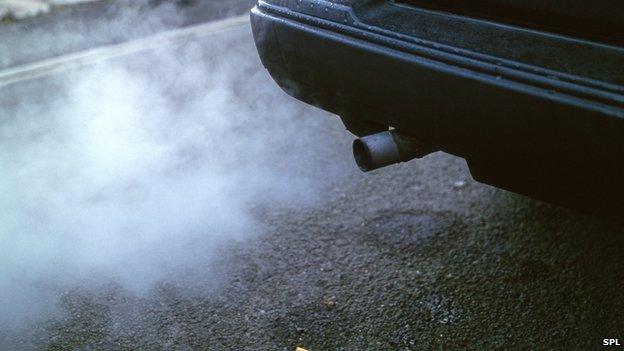
Government figures show exposure to air pollution contributed to more than 28,000 deaths across the UK
Plans to charge drivers of diesel cars about £10 to drive into central London are being considered.
The levy would be on top of the current £11.50 congestion charge for driving into the centre of the capital.
London Mayor Boris Johnson wants the new Ultra Low Emission Zone (ULEZ) to be introduced by 2020.
The Times newspaper, external says he will lobby the government to increase vehicle excise duty on diesel cars to encourage motorists to move to cleaner vehicles.
Only diesel vehicles meeting the Euro 6 emissions standard will be exempt, while petrol cars registered before 2006 will also have to pay.
All new cars sold from 1 January 2015 must meet the Euro 6 emissions standard, a stringent European Union directive to cut exhaust pollutants which targets a cut in nitrogen dioxide, seen as an air pollutant.
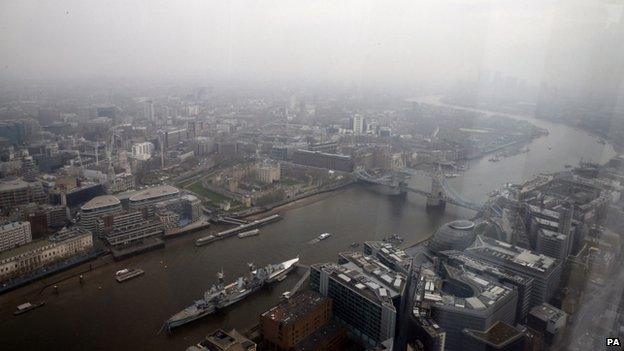
London has been in breach of European targets on air pollution
A spokesman for the mayor said the plans will be subject to a full consultation and any levy on cars not meeting the Euro 6 emissions standard would be "likely to be a similar amount to the congestion charge".
The mayor's environment adviser, Matthew Pencharz, said: "Over recent years the Euro diesel engine standards have not delivered the emission savings expected, yet governments have been incentivising us to buy them.
"This has left us with a generation of dirty diesels."

Correspondent analysis
Matt McGrath, BBC News environment correspondent
Many politicians argue that the root cause of London's poor air quality is Europe.
EU attempts to improve diesel engines in cars have focused on reducing carbon dioxide, but emissions of nitrogen dioxide (NO2) weren't restricted.
Many governments, not just in Britain, gave incentives to motorists to turn to diesel as a way of meeting EU climate change targets. So NO2 levels soared.
Mayor Boris Johnson will give more details about his plans to curb emissions of nitrogen dioxide in a speech to mark 60 years since the first London-specific Clean Air Act was passed, stopping the burning of coal in some areas of the city.
Campaigners now believe the mayor should take a note of the history and announce a complete ban on the dirtiest diesels.

The RAC foundation has said incentives, such as putting diesel cars in lower vehicle excise duty bands, was to blame.
Foundation director Professor Stephen Glaister said: "This isn't quite a mis-selling scandal, but for years ministers took their eye off the ball and encouraged drivers to buy diesels to help fight climate change.
"That has come at a cost: local air pollution. Today 10 million cars in Britain are powered by diesel engines - a third of the total.
"Part of the problem is regulation. In laboratory conditions diesel cars have met strict test criteria. Unfortunately that performance hasn't been matched on the road and now we have a significant health issue because of the dash for diesel."
The initiatives are being considered to help meet European regulations on clean air and avoid the threat of heavy fines for breaching them.
'Backward step'
But AA president Edmund King said the vehicles with the most impact on air quality were buses, taxis and trucks.
"Very few cars enter central London so these measures will have more effect on the growing numbers of small businesses and service vehicles on whom London's economy relies.
"They will have to plan ahead to change their vehicles if they are to stay in business."
Simon Birkett, from Clean Air in London, said: "In February last year Boris was planning to ban older diesel vehicles from the congestion charging area from 2020.
"What he's now announcing is a backward step. It will be a charge for some diesel vehicles 10 years after a city like Berlin actually banned the oldest diesels.
"It's like allowing rich people to pay ten quid a day to smoke cigars in pubs and schools."
The Department for Environment, Food and Rural Affairs (Defra) said that unless action was taken, London, Birmingham and Leeds would face dangerous levels of pollution from vehicle exhausts by 2030.
Government figures show long-term exposure to air pollution contributed to more than 28,000 deaths across the UK in 2010.
And in February, it was reported that pollution near Buckingham Palace was the worst in the UK and almost four times the EU legal limit.
Jenny Jones, from the Green Party on the London Assembly, told BBC London 94.9: "I back Boris on this but he is making a lot of promises that a future mayor will have to implement.
"He should show some political bravery and bring the Ultra Low Emission Zone forward - what is he waiting for?"
- Published10 July 2014
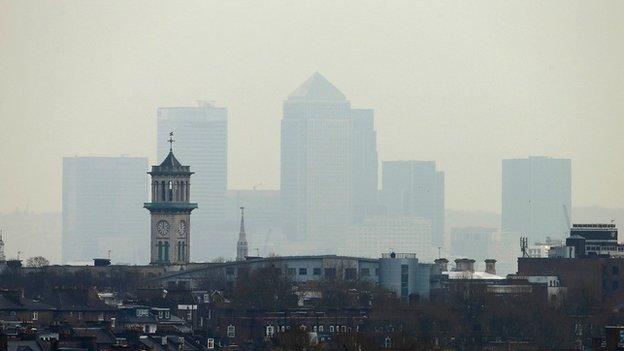
- Published4 April 2014
- Published23 February 2014
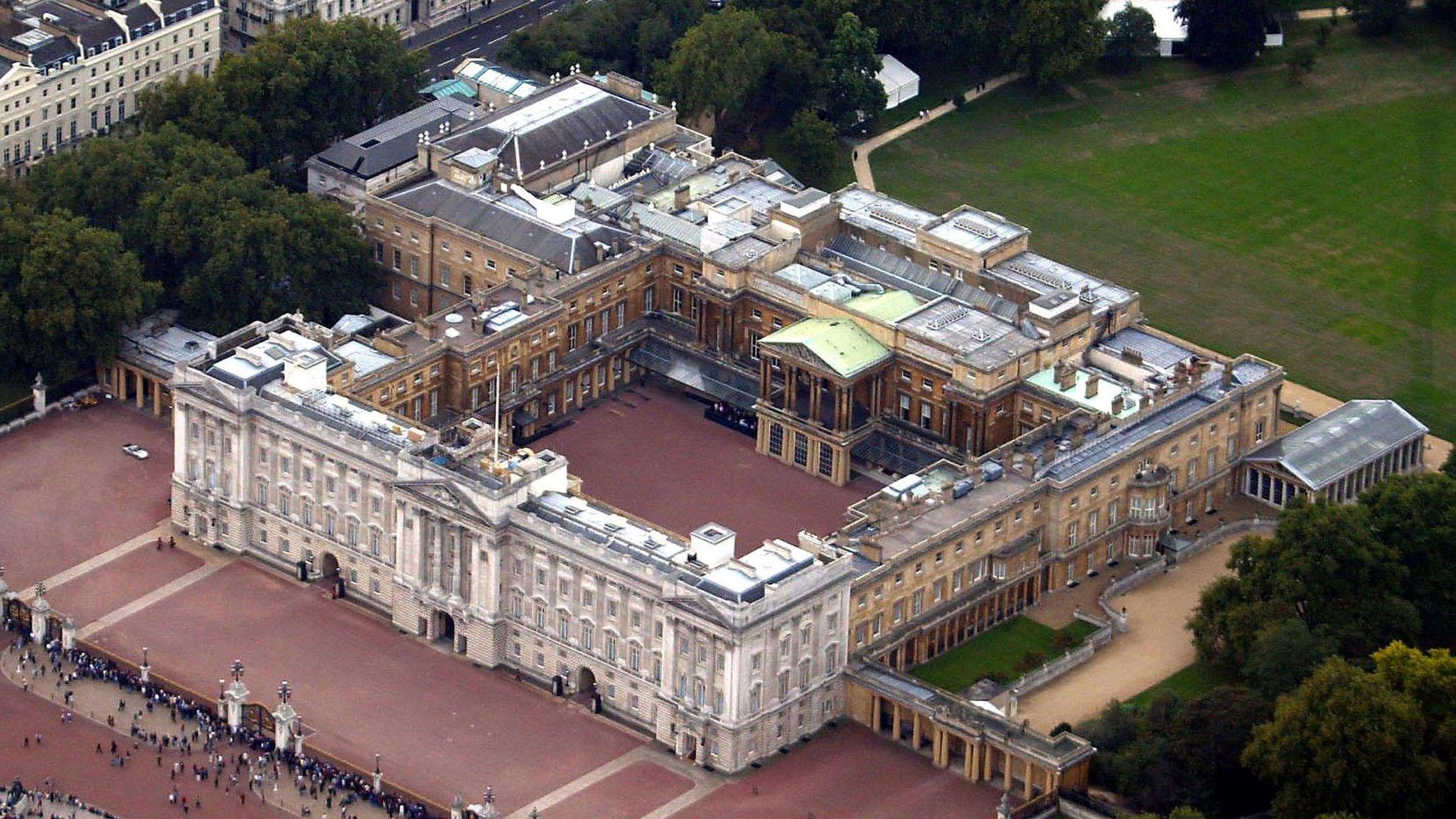
- Published13 February 2013
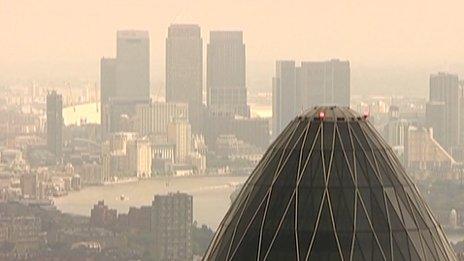
- Published10 December 2012

- Published6 December 2012
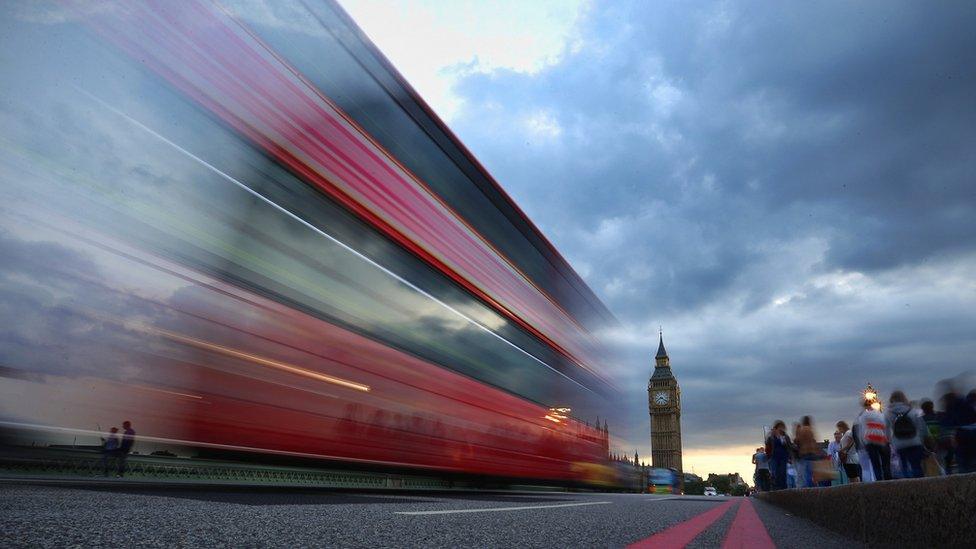
- Published5 December 2012
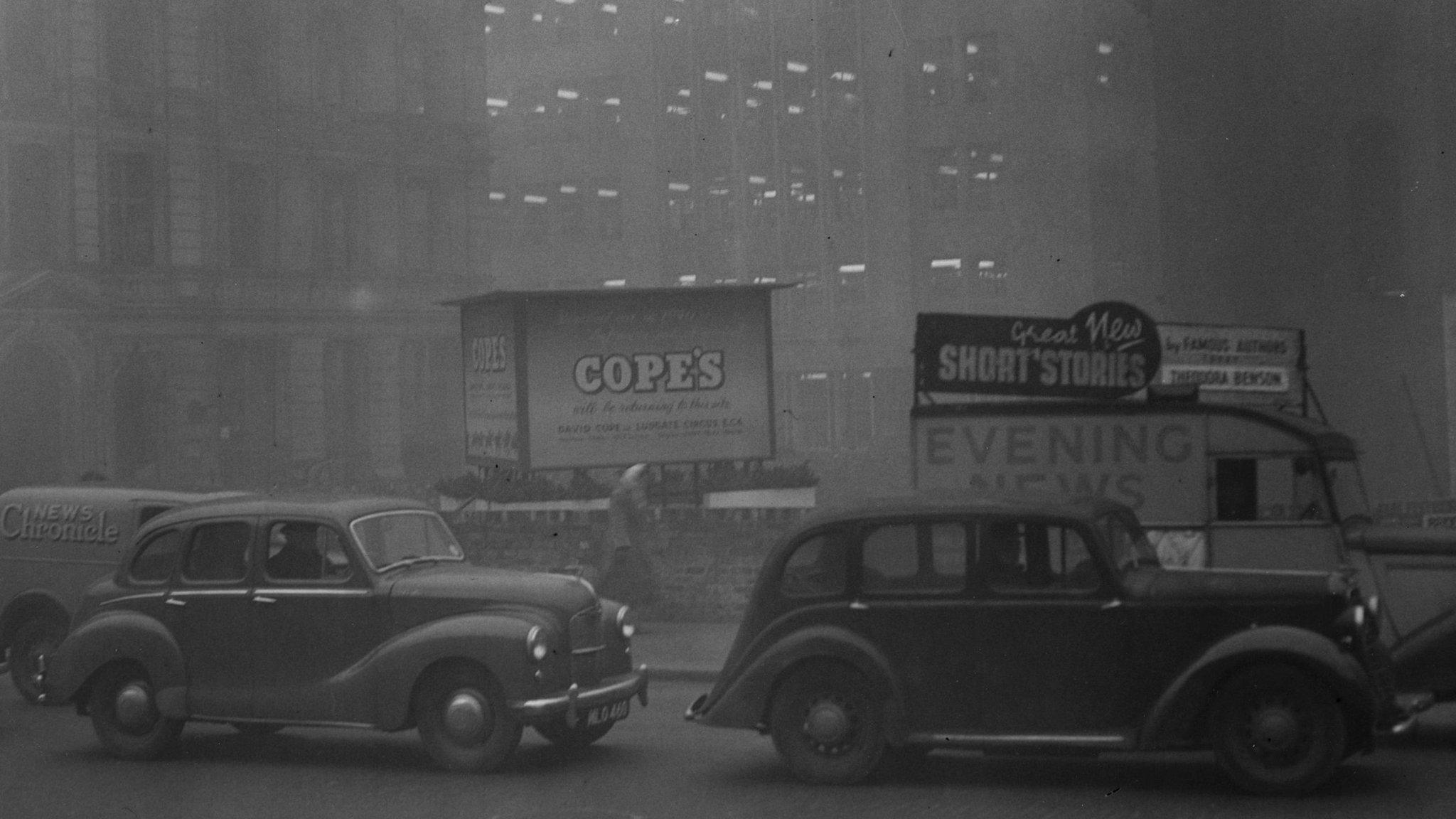
- Published8 August 2012
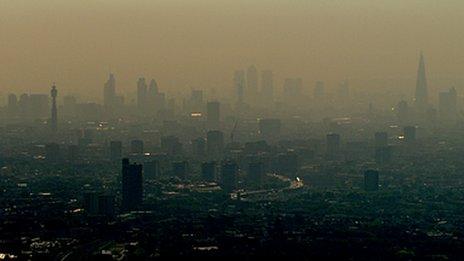
- Published27 June 2012
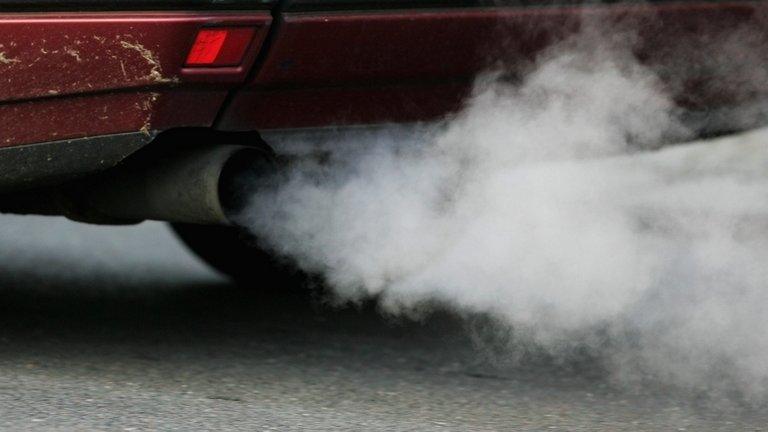
- Published21 April 2011
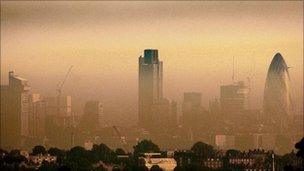
- Published22 April 2011
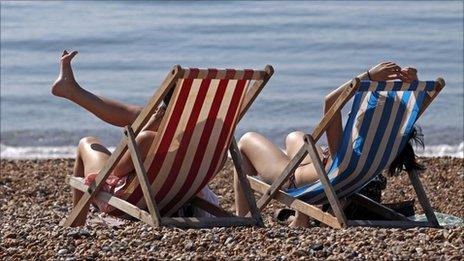
- Published11 March 2011